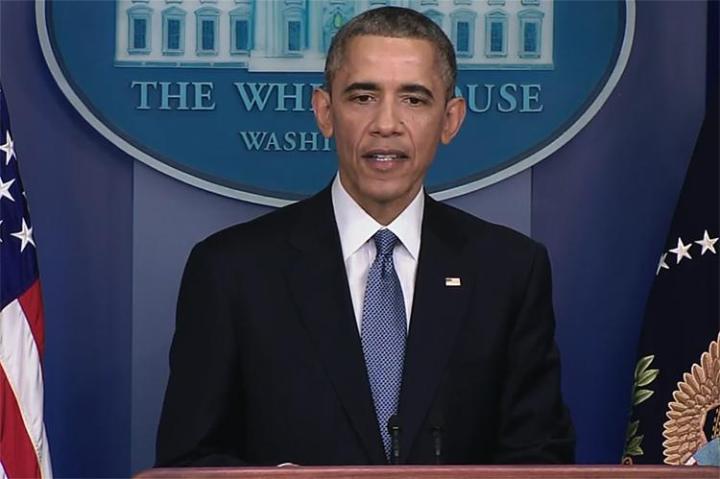
To tech companies, privacy comes in the form of encryption, which is designed to ensure that emails and other messages are unreadable by anyone other than the parties involved in the communications. Because encryption also can stop the FBI and the Department of Homeland Security from peeking in, the government contends that encryption blocks the effectiveness of an investigation of someone who might be involved in a high-level crime such as a terrorist plot.
“We are opposed to any policy actions or measures that would undermine encryption as an available and effective tool.”
While President Obama understands the desire for privacy through the use of encryption, he has asked tech companies to allow the government to break that encryption when necessary. In other words, he is for encryption that thwarts hackers and criminals, so long as it provides a back door for situations where the government thinks an individual is involved with a possible terrorist attack.
The letter to Obama was written by the Information Technology Industry Council and the Software and Information Industry Association, which represent tech companies such as Google, Facebook, Apple, and Microsoft.
“We are opposed to any policy actions or measures that would undermine encryption as an available and effective tool,” the companies wrote in their joint communication. “We appreciate that, where appropriate, law enforcement has the legitimate need for certain information to combat crime and threats. However, mandating the weakening of encryption or encryption ‘work-arounds’ is not the way to address this need.”
The letter was also sent to Secretary of State John Kerry, FBI Director James Comey, Homeland Security Secretary Jeh Johnson, Attorney General Loretta Lynch, and other Cabinet heads.
Interestingly, the Information Technology and Innovation Foundation released a study today finding that the government’s failure to reform the NSA’s surveillance programs resulted in the tech sector losing jobs and shedding global competitiveness, at a cost of about $35 billion.
Privacy advocates scored a victory last month when Congress failed to extend the Patriot Act, and could applaud one potion of the USA Freedom Act, which was passed last week, since the Act bars the FBI from gathering data from Americans’ telephone calls.
While everyone has a right to privacy, it’s unknown how the public would react if a terrorist attack were to take place and the government’s related investigation was found to have been stymied by encryption.
So how does the government address the need to protect its citizens from external threats, while also ensuring their privacy? That is a question that will certainly not be answered anytime soon, and it will most likely be a major issue in the 2016 presidential election.

